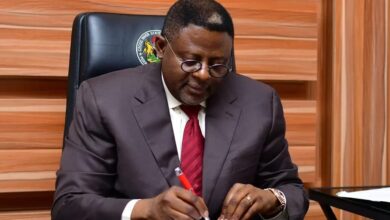Nigeria: WHO Pledges Support For Self- sufficiency In Traditional Medicine

The World Health Organisation (WHO) has said that it remained committed to continue supporting the Government of Nigeria in its goal of achieving self-sufficiency in the local production of pharmaceuticals (including Vaccines), traditional medicine and researches.
Dr. Walter Kazadi Mulombo (WHO Country Representative) hinted this in Abuja today while commemorating this year’s Traditional Medicine Day tagged “The potential contribution of Traditional Medicine to COVID-19 Response”.
TheFact Nigeria gathered that Nigerians preferred a traditional covid-19 drug/ vaccine manufactured in the country to the imported ones.
Dr. Walter who was represented by Dr. Kofi Boateng, EPI Focal Point , Universal Health Coverage(UHC) highlighted that
WHO recognised that traditional, complementary and alternative medicine had many benefits when properly harnessed hence researches into them was an effort in the right direction, he said:
“WHO will continue to provide technical assistance to the TCAM department, National Institute of Pharmaceutical Research and Development (NPRD) and NAFDAC in improving the quality of medicinal products and ensure the listing of these products in the National Essential Medicines List.
“The listing of 14 herbal medicinal products by NAFDAC against COVID-19 and ongoing clinical trials on them, is in line with the Regional Expert Committee on COVID-19 aim of elevating the standards of clinical trials of traditional medicine for COVID-19.
“WHO Nigeria has taken it up to support the ministry and in particular the department of Traditional, Complementary and Alternative Medicines, Complimentary in the review of the Traditional Medicines Policy 2007, review of the Nigeria Pharmacopoeia 2008 and the development of a 5-year strategic plan to implement the new policy and the revised pharmacopoeia”, said Dr. Walter.
The WHO Country Representative stated that ongoing research(s) in the National Institute for Pharmaceutical Research & Development and other higher institutions, highlighted the interest of the Government of Nigeria to develop and promote African Traditional Medicines.
Therefore, the Organisation in line with the WHO strategy has advocated for strengthening the linkage between traditional medicine and institutionalised care in the country.






